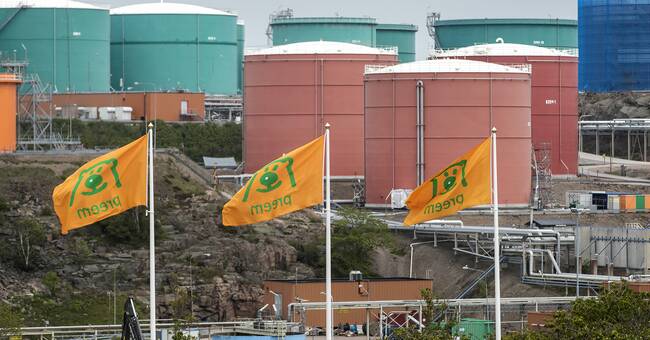The climate budget was described this week as historic with 10 billion in investments.
But the measure that mainly means that the government for the first time says that Sweden can reach the goal of 70 percent reduced emissions by 2030 for the transport sector does not cost a penny.
The government now wants to force the petrol companies to sell an increasing proportion of biofuels every year - those who do not meet the requirements must close down.
It is called a reduction obligation and already exists on a small scale, and has meant that there is about five percent ethanol in all petrol sold and about 20 percent biodiesel in diesel.
This low-mixture has already done more to reduce climate emissions than all plug-in hybrids and electric cars combined.
The math is simple.
There are only 40,000 electric cars today and 100,000 plug-in hybrids.
But 4.5 million cars run on petrol and diesel.
Many fairly new with the potential to roll ten more years or more.
Decisive for traffic emissions in the short and medium term is what these cars emit.
Lack of good biofuels
The government is now increasing the bonus for electric cars.
At the same time, the reduction obligation is being sharpened and the requirements are increasing year by year.
By 2030, 28 percent of emissions will disappear from petrol, 66 percent from diesel.
Tough demands - much more biofuels or shut down!
Most of today's cars can handle a higher proportion of biofuels.
And the method also has an effect on motorists who cannot afford an electric car, or who lack climate commitment.
There is only one problem.
There is a shortage of good biofuels.
Around 80-85 percent of the biofuel used in Sweden is imported, with a high risk that there is palm oil in biodiesel and that the fuel is produced with energy from coal-fired power plants.
The budget invests in biofuels, both targeted support and possible government loans.
But who will produce?
Wants a permit to manufacture biofuels
Here comes the government's dilemma:
Preem in Gothenburg is today Sweden's largest manufacturer of biofuels.
And if they are allowed to expand in Lysekil, they want to start with biodiesel there as well.
But the expansion would provide an additional one million tonnes in emissions locally.
Hence all environmental protests.
At the same time, Preem says that they want a permit to produce biofuels, they can make five million tonnes of bio by 2030. These are volumes that would provide a climate benefit of 8-10 tonnes of CO2.
In other words, significantly more than emissions locally, and significantly more than SSAB's planned hydrogen plant in Luleå;
the one where Isabella Lövin and Prime Minister Stefan Löfven gladly went to inaugurate and support with 600 state millions.
The government has taken over the Preem case from the court, which said yes.
Yesterday, the municipal council in Lysekil said yes - otherwise the issue would have been dead.
So what happens if the government does not say yes or no, but instead makes the same tough demands on the refinery in Lysekil, as on Preem's gas stations?
- it is partly the same company.
Got a positive response
If you demand an application with binding promises of solid and increased production of biofuels, where today there are vague hopes.
If you simultaneously attract with support from the "climate step", so the commercial needs to expand the fossil refinery can be limited.
Then the reduction obligation could be secured with Swedish raw materials and the plant in Lysekil contribute to achieving the climate goals.
At the recent press conference on the climate budget, Isabella Lövin avoided all questions about Preem's condition.
Message will come later.
But when I asked if she would like to open a biorefinery in Lysekil, - just as she did with the hydrogen plant at SSAB in Luleå - I got a positive answer.
- I am in favor of a fossil-free transition.
So it would be very gratifying if all industries that become fossil-free invite me to inaugurate, she said with a smile.

